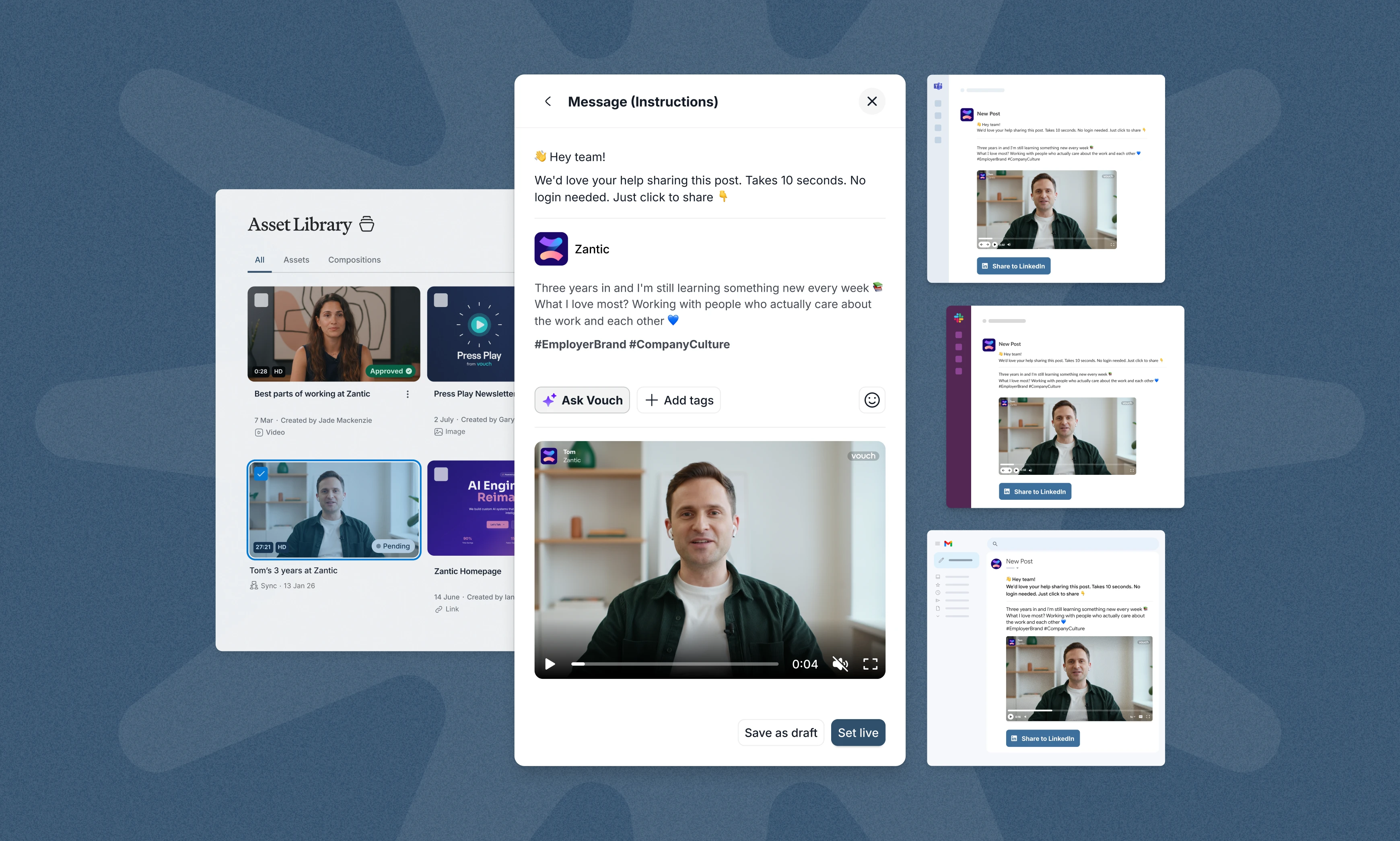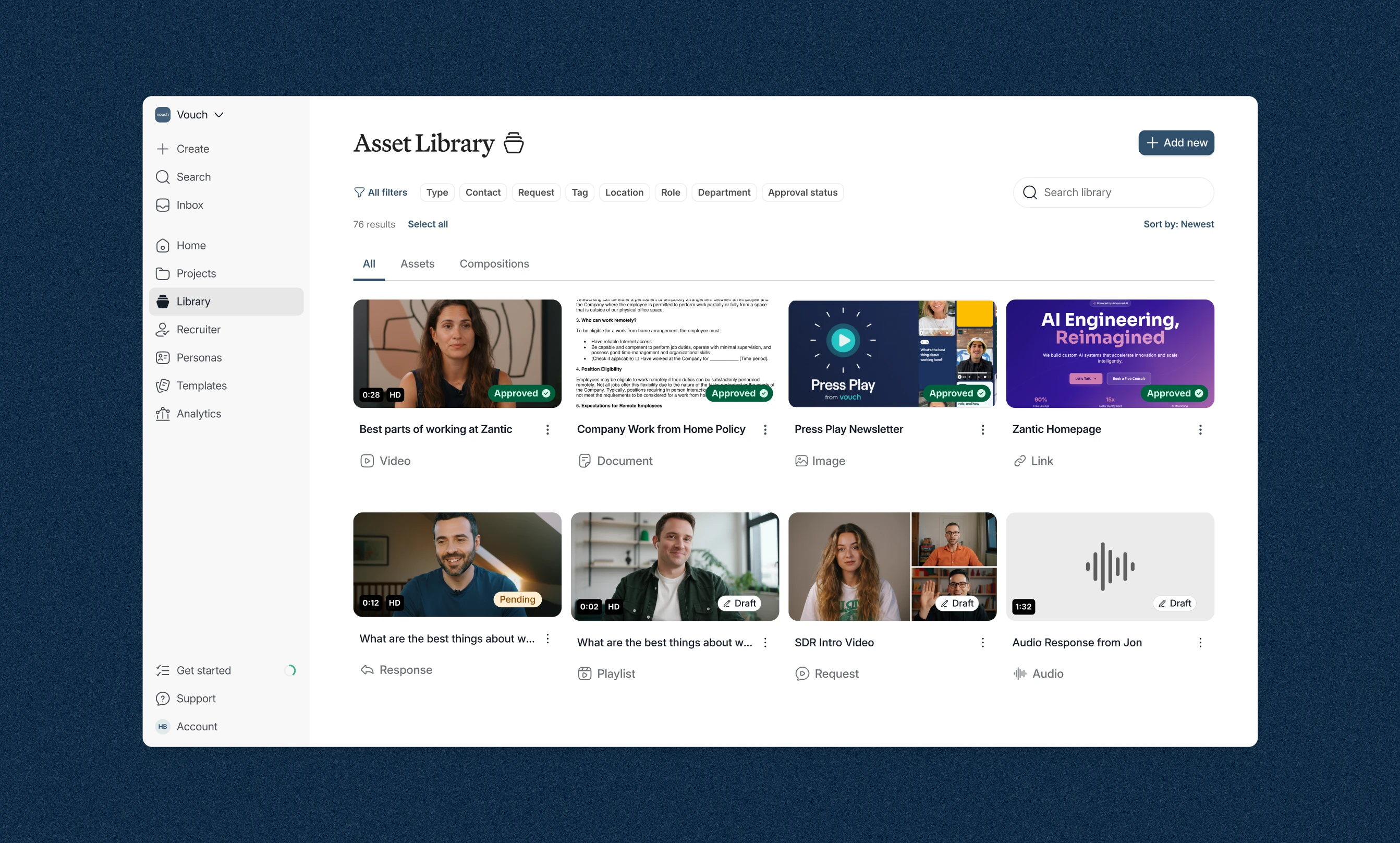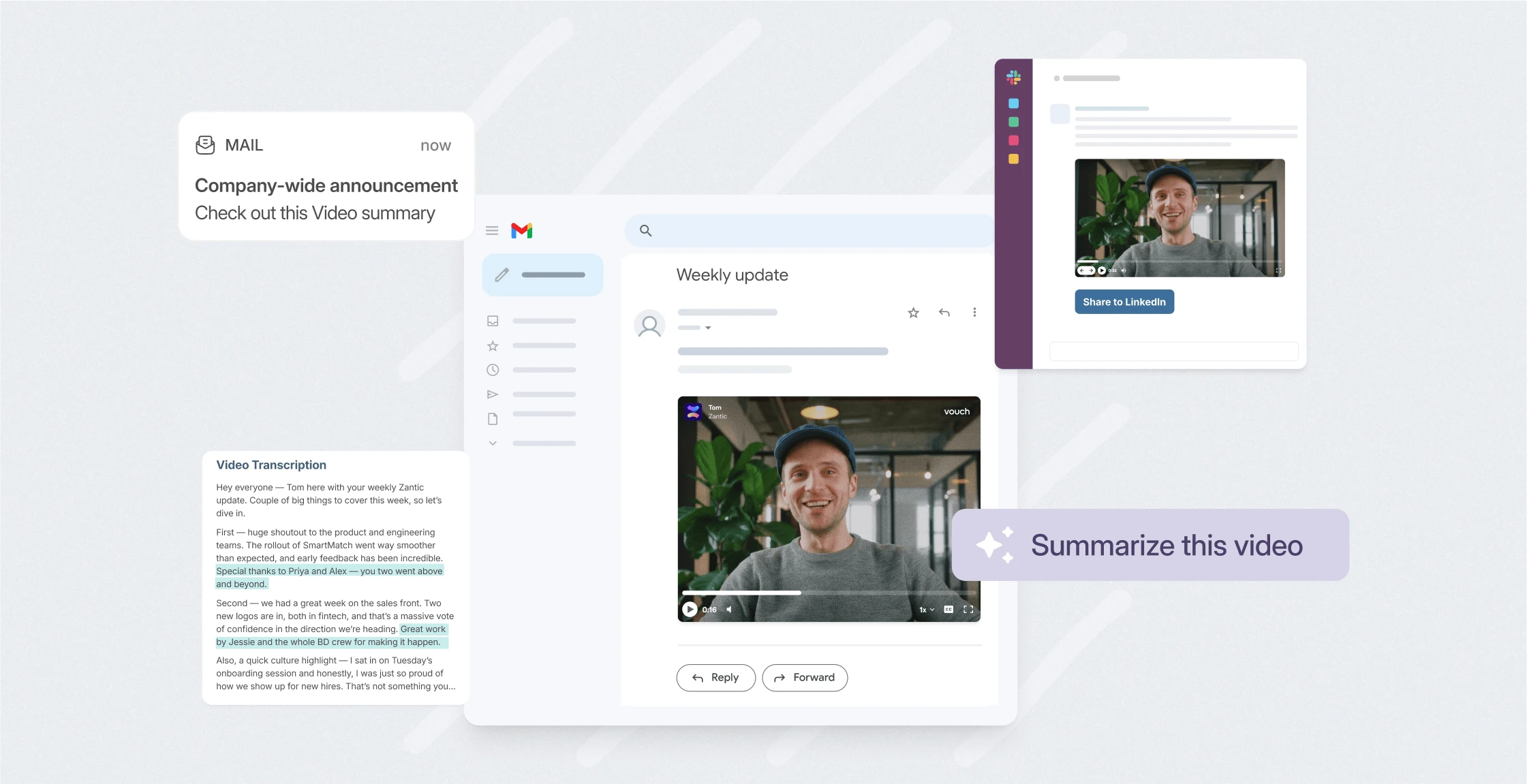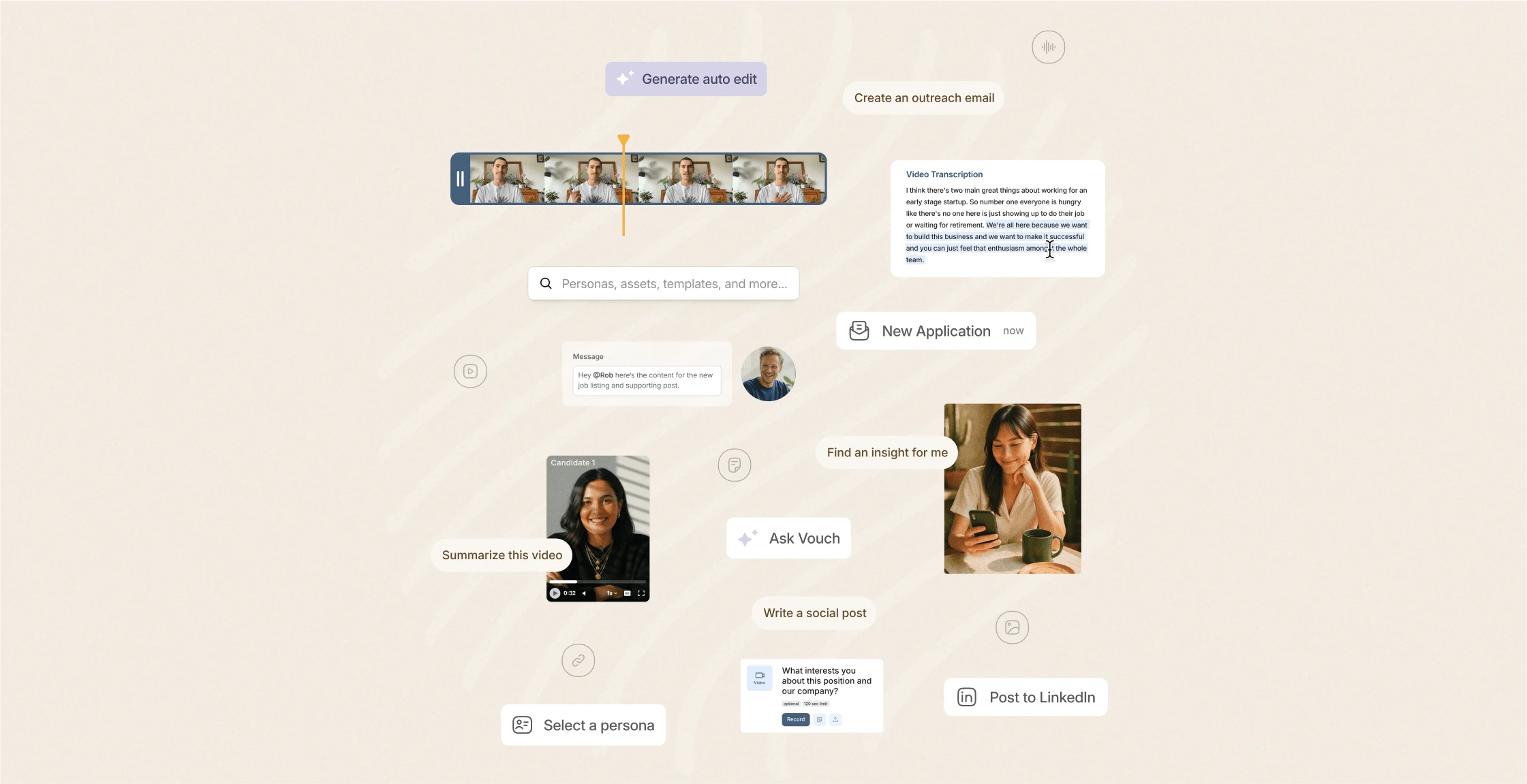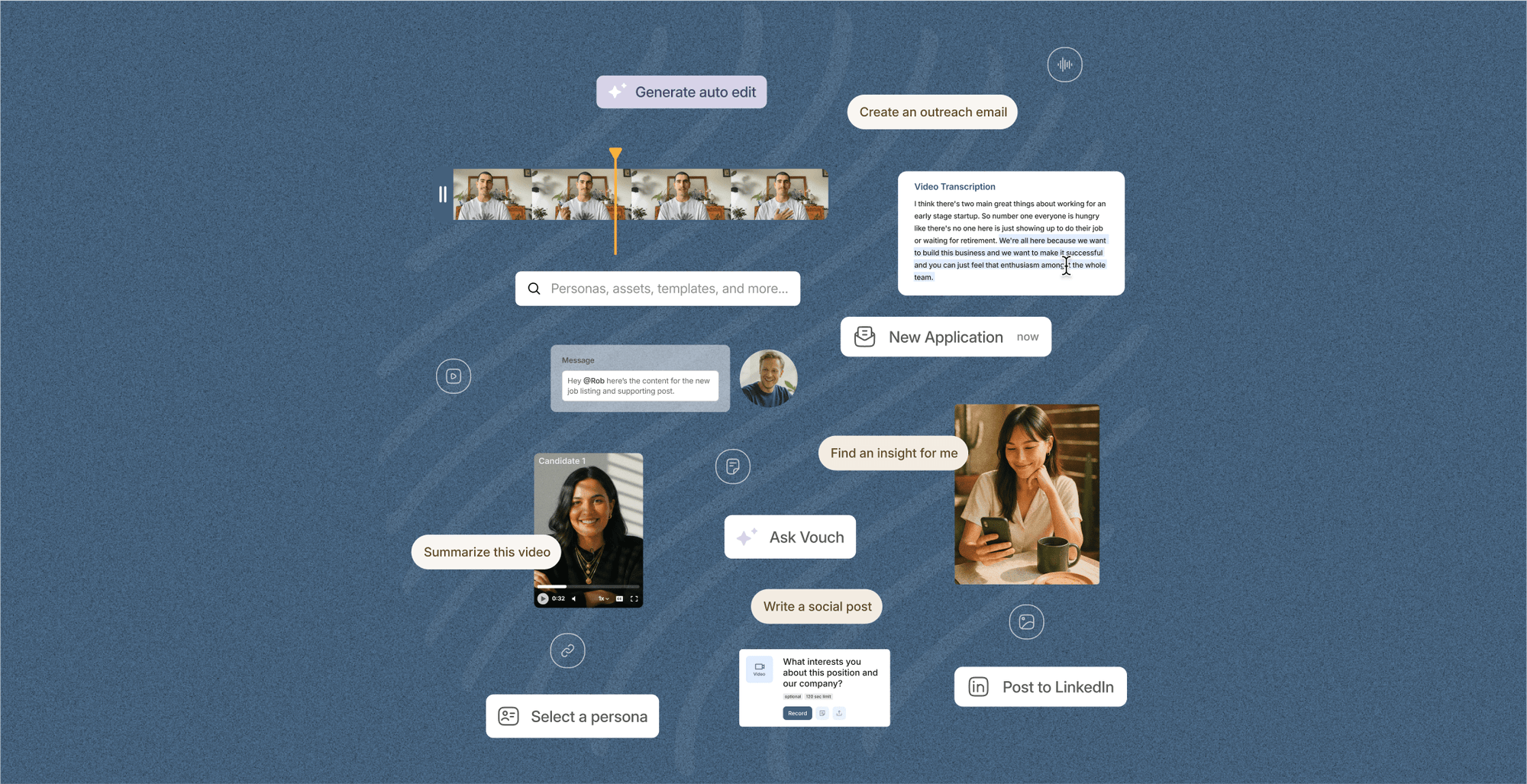As the creative lead for Vouch, I work with some of the world's best companies on their employee experience - companies like Canva, Nike, Cisco, HubSpot, Amazon, and more.
Employee experience (EX) has become a pivotal factor for business performance and employee retention in 2026, and today, we've got 10 simple statistics that you really need to know.
So, let's get started.
Key takeaways:
- A great employee experience boosts productivity, with $7.8 trillion globally lost annually due to low employee engagement.
- A positive employee experience and workplace culture can significantly increase company revenue by 4 times.
- Employees who feel heard are 4.6 times more likely to perform their best.
- Hybrid work models have become crucial, with 95% of workers considering job changes for flexibility.
- Tools like Vouch can help you improve your employee experience and engagement at every stage of your employees' journey.
Why Does Employer Experience Matter?
Numerous studies and statistics highlight the direct link between employee experiences and core business outcomes, including employee retention, engagement, productivity, and overall financial performance.
Employee experience matters because it is how your employees "feel" about your company.
When they feel great coming to work each day, they do their very best work individually and in teams. The benefits are immense.
So let's dive in:
Bring your employer brand to life
- Empower employees’ storytelling
- Transform careers sites with video
- AI-driven video editing
- Publish videos anywhere
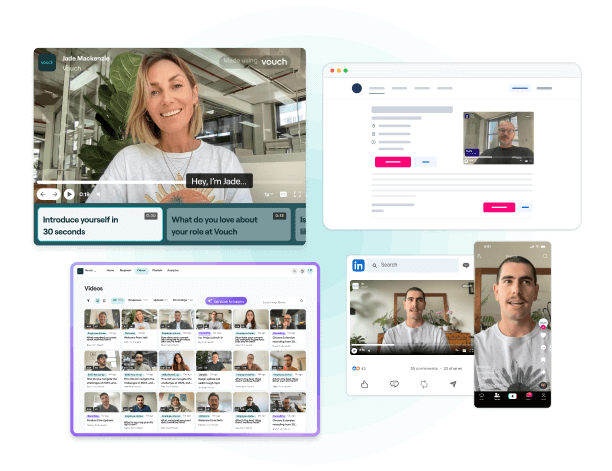
Statistic 1. Employee Experience And Productivity
Having a great employee experience leads to highly engaged employees and employees who go the extra mile and do their very best work.
Statistically, $7.8 trillion in productivity is lost each year globally due to low worker engagement, with $550 billion lost in the U.S. alone. Source Gallup
Statistic 2. Employee Experience And Workplace Culture
Your workplace culture plays a significant role in shaping the employee experience. A positive company culture fosters employee satisfaction, while a bad company culture can lead to high turnover rates and disengaged employees.
Statistically, a company with a better culture would increase its revenue by 4x. Source EduMe
Statistic 3. Employee Experience And Employee Feedback
Regular feedback is essential for maintaining employee morale and engagement. Employee surveys with tools like Vouch provide valuable insights into employee sentiment, helping you to identify areas for improvement. Continuous feedback mechanisms, such as temperature check surveys, are critical factors in enhancing your employee experience and ensuring your employees feel heard and valued.
Employees who feel heard are 4.6 times more likely to perform at their very best. Source EduMe
Statistic 4. Employee Experience And Hybrid Employees
The shift to remote workers and hybrid work models has transformed the employee experience since COVID-19. Many employees want hybrid work that offers flexibility and a healthier work-life balance. This is also where your digital employee experience (DEX) is paramount.
95% of workers who participated in a Monster survey said they had considered changing jobs, with many saying "working from anywhere" being a top reason.
Statistic 5. Employee Experience And Employee Development
Providing development opportunities and career growth is a major employee experience factor in retaining employees. Offering career development opportunities in 2026 is a must, and so are strategies like micro-learning.
81% of in-house recruiters say they plan to work more closely with learning and development (L&D) solutions in the future. Source LinkedIn
Statistic 6. Employee Experience And Financial Performance
There is a direct link between a positive employee experience and financial outcomes. When people love coming to work, they do their best work and are proud of being part of your company. It's not just output either; even the savings in turnover can be immense (next stat), which is why EX matters so much.
Teams that are highly engaged result in 21% increased business profitability. Source EduMe
Statistic 7. Employee Experience And Employee Recognition
Employee recognition and benefits are influential factors in creating a world-class employee experience. Recognizing employees' contributions and offering tangible benefits, such as competitive salaries and personalized experiences, can boost employee happiness and morale. This contributes to a productive and engaged workforce, ultimately driving business success.
A culture of recognition can save a company with around 10,000 staff members up to $16.1 million each year in turnover costs. Source Workhuman
What Role Does Leadership Play In Employee Experience?
Business leaders and your executive team play a critical role in shaping your company's employee experience and ensuring you've happy employees at every stage of their your journey - and even in their personal life.
The stats again say it all. According to Reward Gateway, nearly 60% of employees would prefer regular praise and thanks over a 10% pay increase with no recognition.
That's how much your leadership team can make.
Executives need to prioritize employee experience as part of their strategic initiatives. The Conference Board's C-Suite Outlook Report highlights that executives rate employee experience as a top priority for achieving business success.
FAQs
Why does employee experience matter?
Employee experience matters because it directly impacts employee retention, engagement, productivity, and overall financial performance.
How does employee experience affect productivity?
A great employee experience leads to highly engaged employees who perform their best, individually and in teams.
What role does workplace culture play in employee experience?
Workplace culture significantly influences employee satisfaction and turnover rates. Companies with a positive culture can see revenue increases of up to four times compared to those with poor cultures.
How important is employee feedback in shaping employee experience?
Regular employee feedback is crucial for maintaining morale and engagement. Employees who feel heard are 4.6 times more likely to perform at their best.
What is the impact of hybrid work models on employee experience?
Hybrid work models, which gained prominence during COVID-19, offer flexibility and a healthier work-life balance, with 95% of workers in a Monster survey citing the desire to "work from anywhere" as a key factor.
Conclusion
By focusing on employee engagement, satisfaction, and well-being, you can drive business results and achieve long-term financial success - with employees who do their very best work for your company.
For additional resources and comprehensive guides on enhancing employee experience, please be sure to head to our blog for more guides and information to help you get your EX right. You can find our blog here.
See Why EX Managers Love Vouch!
Loved by companies like Canva, Nike, Cisco, HubSpot, Amazon, and more, tools like Vouch make leveraging video in your business remarkably easy.
Be sure to book a Vouch demo today and chat with a video content expert.
You might also like

Elevate Your Brand Today With Vouch
Discover how Vouch can accelerate talent acquisition while helping you stay on-brand.

